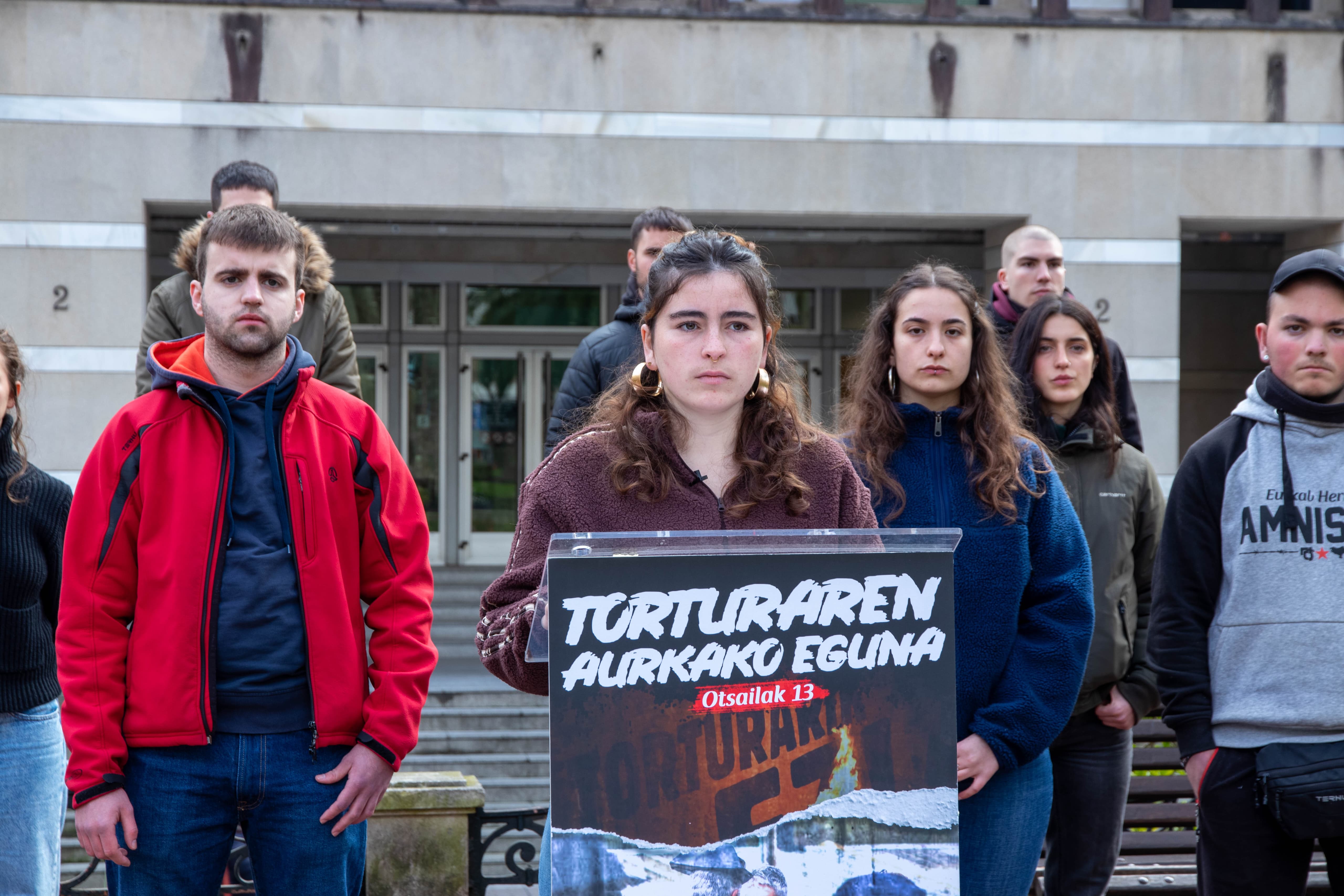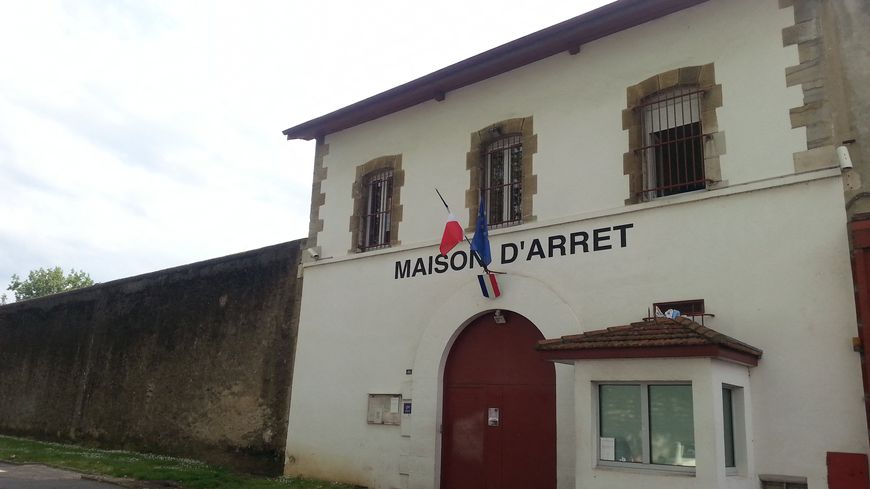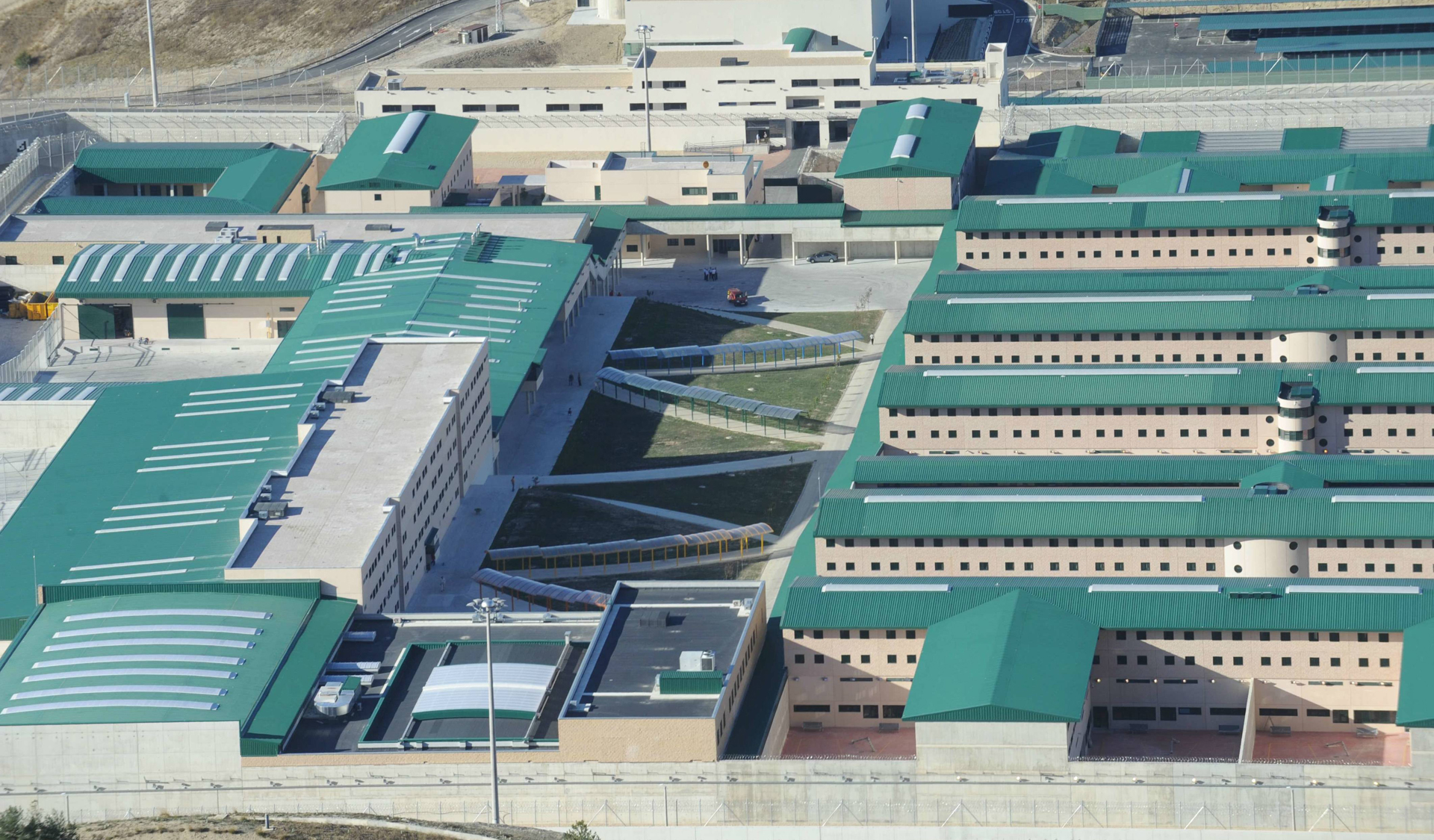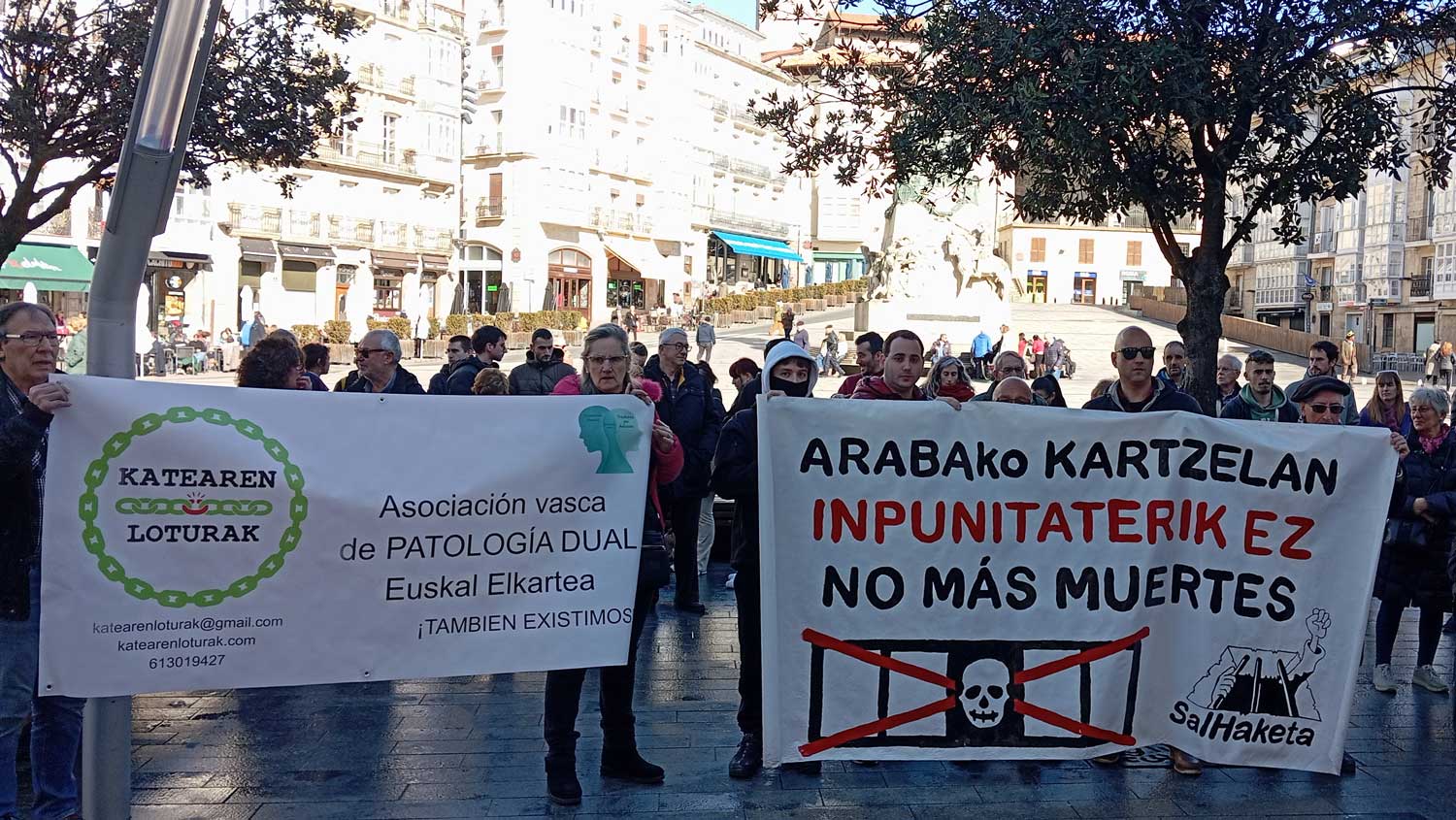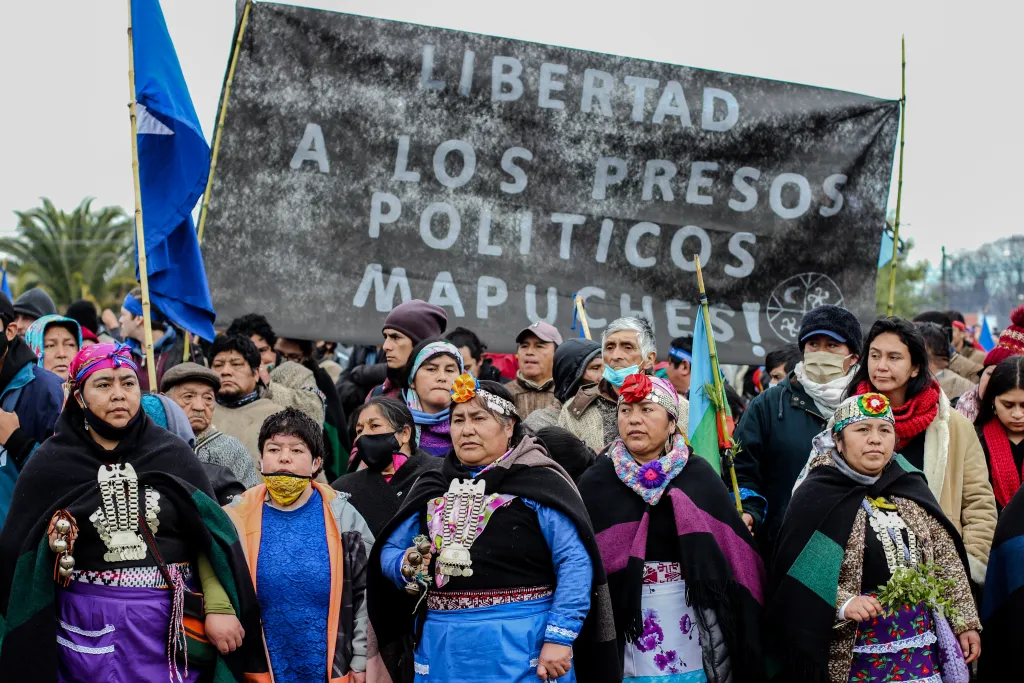Final I.M.E. Arama's pelotari was the winner of the stage, a 35-year-old Gasteiztarra. His body appeared on 26 September last, the fourth deceased in Zaballa prison as of the year. César Manzanos (Bilbao, 1961), head of Salhaketa in Álava, stressed that this is an "avoidable tragedy", at a hearing held this week in the Plaza de la Virgen Blanca. "Why are we not demanding accountability or, at least, investigating? Would the same happen if the victims were others? Are these deaths admissible with impunity in a state institution? ".
Do we really know what is happening in Zaballa prison?
No. It's precisely one of the keys to what's going on, one of the keys to ending what we've called the "spiral of impatience." There is insufficient information from the prison administration; what is more, it is intended to hide what is happening. In the past, the deaths were reported, a press release was sent, but by order of the management they are not made public. The family is informed of death and, normally, from jail is recommended to the families who incinerate the body, at that time the families are agitated and in many cases do what they tell them from jail with the formalities of death. They're working this way. The administrative report only picks up the version of the jail, so death closes and ends: the dead is kept under the carpet.
Does Salhaketa have difficulty in receiving this information?
We only know some deaths. This year we've met five, four in jail and one in the hospital after a beating, but that doesn't mean five. We know this through the families who get in touch with us, we don't get official information from jail.
This is often said to be "natural deaths". Are they natural?
No, of course. When you talk about natural causes, you're supposed to have some pathologies, a friend of your age... These are not natural deaths, yet they are preventable deaths. If the prison protocols had worked and there was no dynamic conducive to the conditions of those deaths in prison, these people would be alive today, most of them.
The main cause is drug overdose and suicide.
Being hanged does not mean that you have committed suicide, but that you have to prove whether that person has been hanged or hanged. Suicide is said to be a guilty person and to take away the responsibility we can have. It's said that "I couldn't get myself," as if the jail didn't cause mental illness. Overdose also doesn't mean that the person has opted for that overdose; one of the hypotheses we manage is that drug trafficking works like on the street, that is, there are people who buy and sell and there are officials who accept it. And in that world, it can happen that if I haven't paid in a moment, someone will adulterate the substance and kill it. I mean, what is an overdose? Why is it not being investigated? Why have you committed suicide? This discourse is completely evil and disgusting. If I am in jail, I have a bond with the administration, that is, my life and my health depend on the administration, and the jail has to have a responsibility, first because illegal drugs are inside. But there is no civil liability, no criminal liability, no investigation, nothing is done... As for suicides, there is a prevention protocol for them that is not being complied with; the first young man who died in September asked twice for a psychologist to be placed because he had already come from the prison in Pamplona with problems... The Administration does not recognize responsibility for these deaths. Terrible.
What is Zaballa prison like?
It's got about 700 prisoners. The modules are saturated. The law advises that each cell be a person for the right to privacy and dignified treatment, but here are two for each cell and several modules closed for lack of officials. Although this is a macroprison, with a capacity for up to 1,500 people, only a few modules are available.
Can closer treatment be given in a macro-prison?
As a system of execution of sentences, prison is incompatible with fundamental rights. He is ruled in prison by granting or depriving of his rights according to the conduct of the culprit. If you are a good prisoner, among other things, you will have the right to communication and if you are bad you will go to hard modules, that is, rights are managed for disciplinary purposes. So, one or the other, there is jail or there are rights. And macroeconomic structures, in particular, generate impersonal relationships, generate a greater sense of insecurity with the conflicting environment that this entails. This year we have recorded over 125 deaths in prisons and are more frequent in macro-prisons.
Is there involvement by local institutions?
The Basque Government has so far said that its competence "is not a problem", so it does not fall within its remit. It has taken several sections, including the safety of prisons; in other words, it has started its house on the roof. This shows in some way that the Government is not interested in providing the social situation of prisoners, such as the centres, the structures. Therefore, when the prison competition comes, the same model will surely be maintained, and that is what concerns us. There will be no firm commitment to another model. The aim is not to transfer buildings, structures, officials, but to put in place another model that puts in place programmes, means, initiatives, services. And in this sense the Ertzaintza; meanwhile, the Ertzainas do what all the other police do: harass the children who are consuming in the street... The Ertzaintza does not have a crime prevention and fighting structure, which follows people with more serious crimes and who, on many occasions, are left without conviction. The structure remains the same, and we believe that the Basque institutions intend to repeat the model, because they have a very different idea of the response to crimes, far from the social protection that must be given to people in prison.
What steps will you take from the Salhaketa Association? What work do you have in your hands?
On the one hand, we have again resorted to the Office of the Prosecutor to initiate ex officio investigations in order to prevent these deaths from recurring and intervening in some way, systematically, so that there is an independent investigation with each death. This is what we are putting on the table again and for that we have come to the Provincial Court with a complaint. The problem is that families have to play a leading role in investigating these deaths, they need to cooperate with them, and many of them, because of different circumstances, do not want or cannot participate. In this way it is very difficult to carry out an investigation, almost impossible. Witnesses and others are needed to carry it out, but it is difficult, because prison has a good subject ... On the other hand, we are working hard with psychosocial support. It is surprising that there are no protocols for families in prisons; he enters with two, five or seven years in prison, appears dead on the verge of leaving and families are left with empty hands. They do not have information, but they do not have psychosocial or legal support. It is very serious and we are still working on it.










